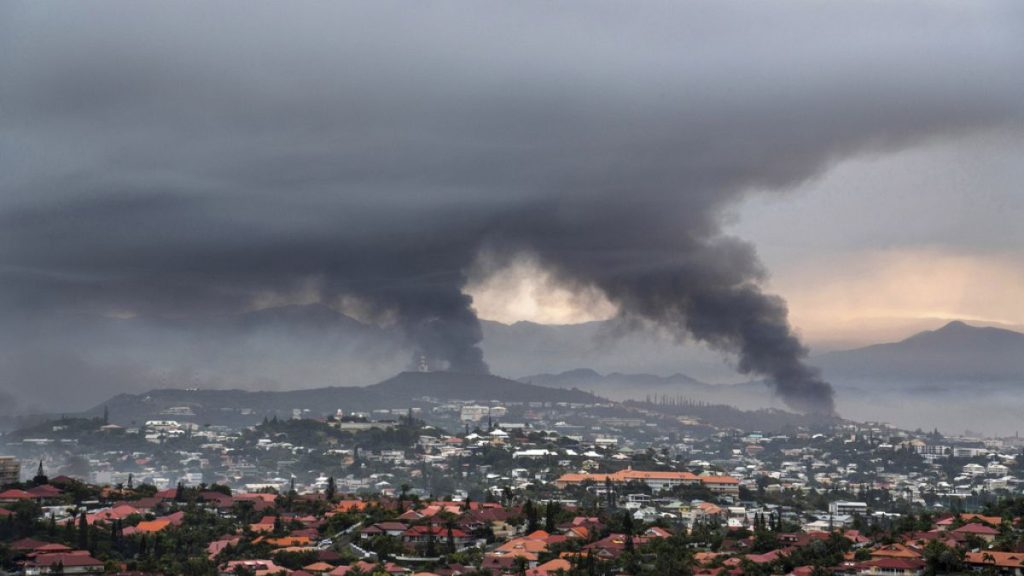French President Emmanuel Macron has lifted the state of emergency in the French Pacific territory of New Caledonia following days of unrest that resulted in seven deaths. The decision is aimed at reopening a political dialogue between pro-independence movement FLNKS and other local leaders. Macron’s move comes after he visited New Caledonia and pushed for the removal of protesters’ barricades, stressing that it is necessary for concrete negotiations to take place. The state of emergency had been imposed by Paris on May 15 to boost police powers, but will now be lifted as a step towards resolving the conflict.
The leader of a pro-independence party in New Caledonia has called on supporters to continue their mobilization and resistance against the Paris government’s efforts to impose electoral reforms that the Indigenous Kanak people fear would marginalize them further. Christian Tein, the leader of the pro-independence party known as The Field Action Coordination Unit, urged supporters to maintain their activism in the French Pacific archipelago. The Kanak and Socialist National Liberation Front also called on Macron to withdraw the electoral reform bill if France wants to end the crisis. This unrest comes as the French legislature in Paris debated amendments to the French constitution regarding voter lists in New Caledonia.
New Caledonia became French in 1853 under Emperor Napoleon III and became an overseas territory after World War II. French citizenship was granted to all Kanaks in 1957. The territory has been the center of a bitter divide between Indigenous Kanaks, who seek independence, and pro-Paris leaders who do not. Macron’s decision to lift the state of emergency is an attempt to create an environment conducive to dialogue and negotiations between the different factions in New Caledonia. The unrest that erupted in the region resulted in violence and destruction, prompting the need for a peaceful resolution.
Macron’s visit to New Caledonia and subsequent lifting of the state of emergency signal his commitment to resolving the conflict through peaceful means. The decision to open a political dialogue with the various components of the pro-independence movement and local leaders is a step towards addressing the underlying issues that have fueled the unrest in the region. The emergency measures imposed by Paris gave authorities greater powers to tackle the violence, but lifting the state of emergency indicates a shift towards a more diplomatic approach to resolving the conflict. Macron’s insistence on the removal of protesters’ barricades as a condition for negotiations highlights the importance of creating a conducive environment for dialogue.
The lifting of the state of emergency in New Caledonia marks a significant development in the efforts to end the unrest and violence that have plagued the region. Macron’s decision to end the emergency measures and initiate a political dialogue reflects a commitment to finding a peaceful resolution to the conflict. The involvement of various political factions and local leaders in the negotiation process is crucial for addressing the root causes of the unrest and working towards a sustainable solution. With Macron’s visit and the subsequent lifting of the state of emergency, there is hope for a more peaceful and stable future for the French Pacific territory of New Caledonia.













